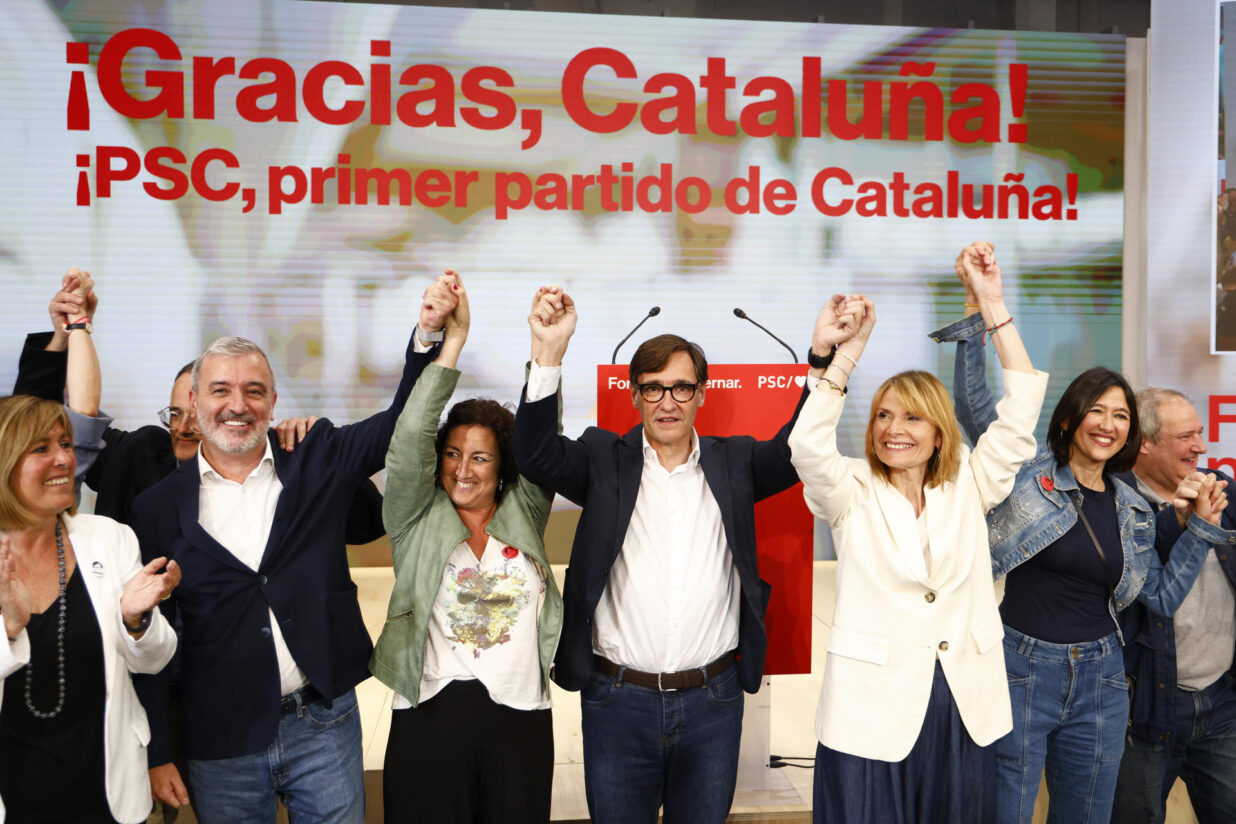13.05.2024 - 08:03
|
Actualització: 13.05.2024 - 08:26
The Catalan independence movement has lost its absolute majority in the Catalan Parliament after a decade.
The loss in both seats and votes is significant: from 74 seats and 1.9 million votes in the 2021 elections, they have dropped to 59 seats and 1.226 million votes.
In yesterday’s elections, Salvador Illa’s Socialist Party of Catalonia (PSC) clearly won with 42 seats.
The Puigdemont factor did not enable Junts to win and achieve a supposed comeback hinted at in recent polls, but it did help them maintain and even gain strength (rising from 32 to 35 seats and gaining an additional 100,000 votes), amidst the major defeat of the independence movement.
This was primarily capitalized on by ERC, which dropped from 33 to 20 seats and lost 180,000 votes, and the CUP, which lost 5 of its 9 seats and over 60,000 votes.
All this in an election with modest turnout (58%), marked by an extraordinarily severe malfunction in Catalonia’s train network, which could have repercussions for weeks.
The far-right increased its representation: the 2 seats won by new party Aliança Catalana are added to the 11 maintained by Vox.
Unionism has clearly prevailed. Not only because of the 42 seats won by the PSC, which gained 9 seats and over 200,000 votes, but also due to a significant increase in both votes and seats for Alejandro Fernández’s People’s Party (PP), which rose from a historical low of 3 seats to 15, pulling in an additional 232,000 votes.
The PP has completely absorbed Ciutadans, which disappears from the parliament seven years after being the top-voted party, although the Vox vote remained loyal with 11 seats.

However, while the PSC has undeniably won, it practically has no chance to govern.
Salvador Illa announced during the campaign that he would present his candidacy to be the President of the Generalitat, but he needs the support of more parliamentary forces.
Puigdemont stated repeatedly that he would never align his votes with the PSC, and in yesterday’s appearance, with fresh results, he called on ERC to explore the possibility of a Catalan obedience government pact.
A tripartite alliance between the PSC, ERC, and the Comuns would just reach the 68 deputies needed for an absolute majority, but President Pere Aragonès was clear in his statement dismissing this option; in fact, dismissing any government pact that includes ERC: given such a defeat, he said, their place will be in the opposition.
Thus, Salvador Illa’s only remaining option would be to become President of the Generalitat with the votes of the Comuns and the PP. And yet, this sum of 63 seats might only win in a second investiture vote in the parliament (after failing the first, which requires an absolute majority), if the eleven deputies of Vox abstained. Because, regardless of what the two deputies from Aliança Catalana did, they would surpass the 59 opposing votes of the independence movement.
It’s an exceedingly difficult equation, and it could have repercussions for the PSOE. Because it is this kind of unnatural pact—implying, furthermore, the passive participation of the far-right—that Puigdemont warned he would not accept, and which would have consequences in Madrid, where the stability of Pedro Sánchez’s government depends on the 7 votes of Junts in the Spanish congress.
If not Illa, the options for Carles Puigdemont fundamentally require that ERC wants to make him president; but since the votes of Junts and ERC (and those of the CUP, should they agree) would not reach an absolute majority, the Junts candidate would need the PSC’s abstention in a second investiture vote that requires a simple majority.
It also seems difficult to imagine that Salvador Illa would agree, having won so decisively—in votes and seats—and considering the negative political repercussions such a move could have for his party, especially in Madrid, which has already felt the strain of having negotiated an amnesty law with the independence movement.
Overall, this outlines a scenario of an ungovernable parliament, which could lead to a repeat election if none of these hypothetical and highly unlikely majorities materialize.
New elections would presumably be in October, where it would be interesting to see what toll could take on parties like ERC, the CUP, and the Comuns-Sumar (which dropped from 8 to 6 deputies), and how the expected return of Puigdemont from exile thanks to the amnesty, and the fact that the president-in-exile could finally campaign normally, might influence Junts’ improvement.
But Puigdemont himself stated in his appearance that he wanted to avoid this situation. To prevent it, either he or Salvador Illa will have to forge some majority.
The phones are already ringing.



